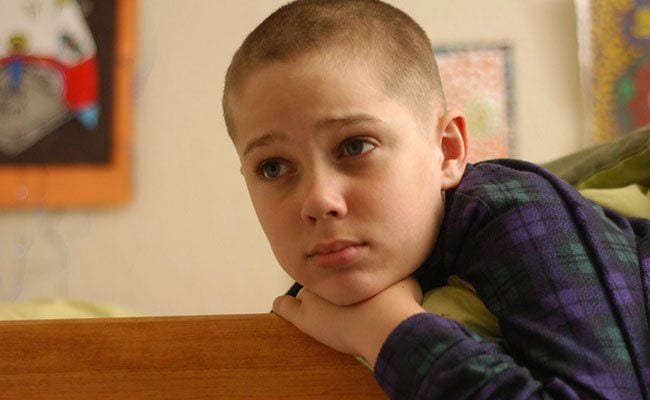
It will go down in history as one of the bravest cinematic experiments, ever. Just think about it for a moment. You decide to make a movie over the span of 12 years, populating it with three actors who you hope will be able to capture your rifts on contemporary family and relationships within the same time frame. You film little bits here and there, coming back every 12 months or so to court the drama. Your vision won’t be fulfilled until the final few years play out.
The pitfalls are all staring you in the face — you could lose one of the cast, or maybe the performance that looked good in year four is now atrocious in year seven. Then there is the approach — this isn’t a firebrand drama from decades past, the truth of relationships turned into set-pieces of confrontation like an action film. Instead, Robert Linklater’s brilliant Boyhood is about the little isolated moments that make up a life. We’ve all been there, we’ve just never seen them all added up in such a profound manner.
The simple story revolves around the Evans family: male child Mason, Jr. (newcomer Ellar Coltrane), his sister Samantha (Linklater’s own daughter, Lorelei) and their single mother Olivia (Oscar-winner Patricia Arquette). Divorced from their dad (Ethan Hawke), the journey begins in 2002. Over time, we experience remarriages and more separations, the anxiety of aging and the flaws in the Evans’ parenting. As we said before, this movie was made in real time, so there are also layers of life invisible to most, but present in every frame. No make-up tricks were used. No CGI employed to show characters’ aging.
As the new Criterion release points out, it was not as simple as the concept sounds. From a commentary track featuring Linklater and other members of the cast and crew to various documentaries and interview Q&As, we learn of the fears and the follow-ups, the moments when everyone felt the project went off the rails to that final, epiphany when they saw the first cut. The result is a remarkable document. Those who own a previous Paramount edition might be bothered that certain supplements did not survive the switch over to Criterion, but the latter does such a splendid job with its releases that the loss is minimal — kind of like the film it complements.
But the movie is the real draw. In essence, the title tells us where the center lies. Mason, Jr. (Ellar Coltrane) becomes the litmus test for the rest of the film. Fail to engage us in his wide-eyed wonder / worry about the world around him and we won’t care — at least, not for 165 minutes. But luckily, Linklater builds in enough recognizable elements that we soon see ourselves in everything that happens. Indeed, Boyhood quickly becomes a universal experience, a mirror upon which we can all sit back and reflect on those things that truly made us / make us who we are.
Early on, a group of boys paw at a Victoria’s Secret catalog, an acknowledgment that almost every male discovers sex through the pages of such a product guide. Later, Mason Jr. joins some “older boys” for some good old fashioned delinquency — and his first beer. From that uneasy admission to a parent over drug use to “the conversation” with a teacher who only has his best interests at heart, Boyhood borrows from everyone’s experiences to showcase our similarities. Samantha (Lorelei Linklater) tracks an equally familiar path, playing the role of aggressor, arguing against decisions and defiant in her spoiled brattiness. Even better, she doesn’t really change, instead altering her stances of passive aggression that we recognize in our “spoiled” siblings.
For those concerned that this film is rather like an impressionistic painting played out over a decade-plus, Boyhood does provide some manner of narrative drive. Mason Sr. (Ethan Hawke) and Olivia (Patricia Arquette) are divorced when the movie starts, he’s trying the shake the label of ‘deadbeat dad’ while she enters into one dysfunctional, abusive drunken relationship after another. Indeed, Olivia seems drawn to men who will end up speaking (and sometimes, striking out) from inside a bottle. Mason Sr., on the other hand, has dreams that will never be fulfilled. Initially, we see him hanging out with his struggling rock star buddy (played by a suddenly ancient Charlie Sexton) and talking about “writing” songs. He’s trying to be responsible dad with a doting wife and some Bible thumping in-laws.
If you don’t find yourself nodding in recognition, it’s not Boyhood‘s fault. The truth is, you should be. As we age, memories become dominant, a mythos being built inside our own head for delivery at a reunion or as part of a walk down memory lane. Boyhood believes that there are little diversions within that narrative, smaller sequences that are just as important as the larger memories.


![Call for Papers: All Things Reconsidered [MUSIC] May-August 2024](https://www.popmatters.com/wp-content/uploads/2024/04/all-things-reconsidered-call-music-may-2024-720x380.jpg)



